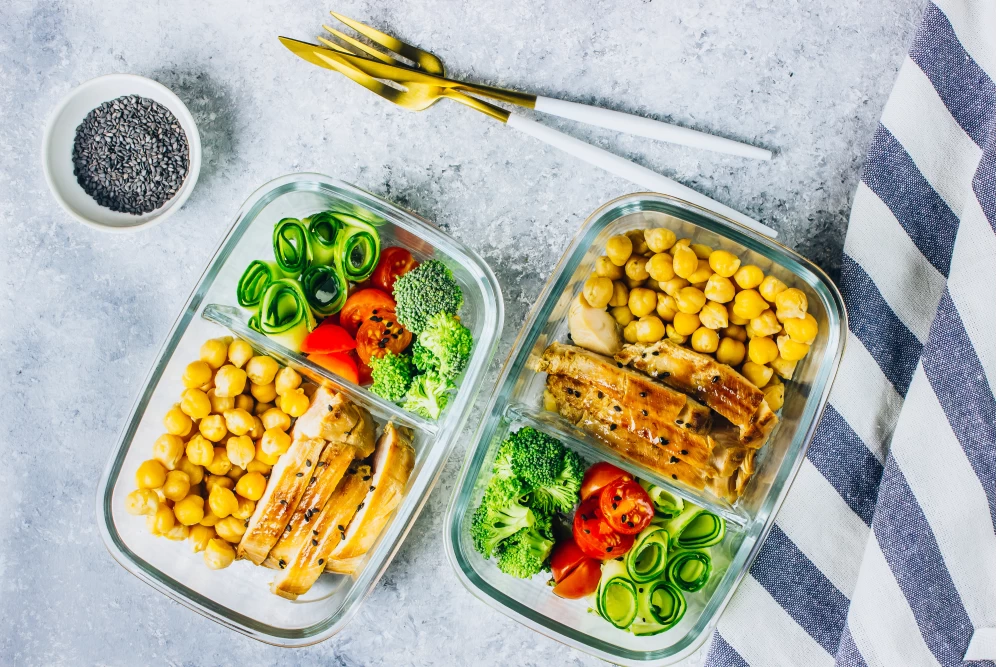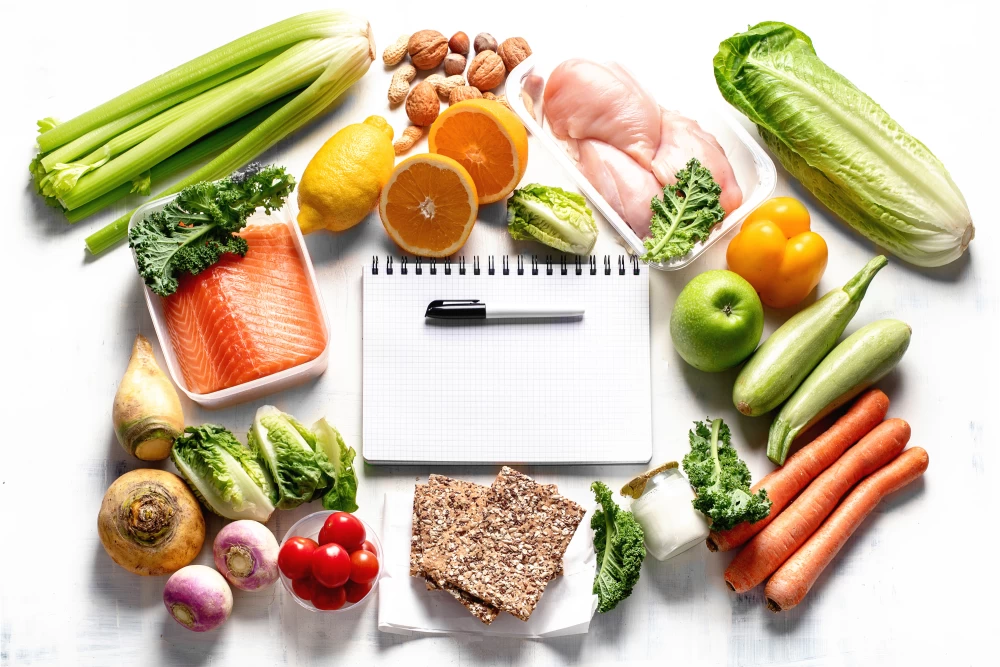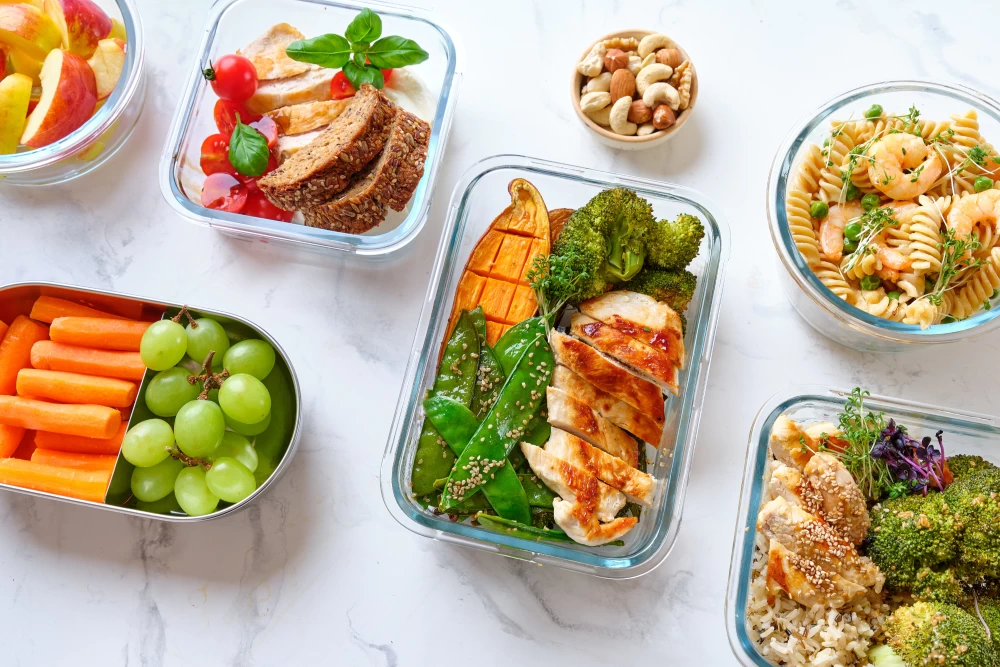
- 23rd May 2023
Table of Contents
- Cheap meal prepping:
- The upsides of a balanced diet:
- Avoid wasting resources and reducing health risks:
- Tend to the Future:
- Create a shopping list and stick to it:
- Make a big pot of something:
- Get the week's worth of food ready:
- Make do with inexpensive materials:
- Produce and meat that are in season:
- Reuse the scraps:
- Attempt some novel dishes:
- Conclusion:
Cheap meal prepping:
Planning ahead is crucial for frugal meal preparation. To begin, make and use a shopping list. To save money, opt for dishes that call for beans, lentils, potatoes, and in-season vegetables. Buying in bulk and storing the excess in the freezer is another smart strategy for cutting costs. Farmers' markets are another option, as are bulk food stores where you can find deals on meat and produce. To save money without sacrificing nutrition, try making your own meals from scratch instead of buying processed foods. This is not only the more fiscally responsible option, but also the more healthful one, as you can regulate the ingredients' quality and quantity. Finally, replacing disposable containers with reusable ones is a great way to cut down on waste and save money in the long run. You don't have to go hungry or break the bank by following these easy tips for meal prep on a budget. Keep in mind that good food can be had on a budget with a little forethought and ingenuity.
The upsides of a balanced diet:
Eating well is crucial to your health and well-being. It's more than a passing fad; it's a way of life that can improve our quality of life in many ways. Weight control is a major advantage of eating healthily. Maintaining a healthy weight and avoiding the health risks associated with obesity can be accomplished through careful meal planning and consumption. In addition, studies have found that people who eat healthily have better brain function and a lower risk of cognitive decline over time. Fruits, vegetables, whole grains, nuts, seeds, and lean protein sources provide the nutrients your body needs to function at its best, so it's important to make food choices like these. Finally, eating well is good for your mind. Omega-3 fatty acids found in fish may reduce symptoms of depression and anxiety, and eating foods rich in vitamins B6 and B12 has been linked to an improvement in mood swings. In conclusion, there are plenty of healthy meal prep options available that won't force you to give up taste or money. No matter your age, gender, socioeconomic status, or anything else, eating healthily will improve your physical and mental well-being.
Avoid wasting resources and reducing health risks:

Preparing healthy meals and eating can seem like a lot of work, but it's worth it in the long run to avoid health issues, financial strain, and wasted time. Preparing meals in advance is a great way to maintain your health and financial stability. Meal prepping allows you to save money and time by allowing you to anticipate what you'll need to buy at the grocery store. Preparing meals in advance also helps you save time during the week because you won't have to devote as much time to cooking every day. As an added bonus, it allows us to make healthier food choices even when we're too busy to cook because of work or errands. We are less likely to skip meals and more likely to eat healthfully when we have a variety of nutritious options within easy reach. Finally, the ability to regularly monitor nutrient intake is another way in which meal prepping benefits health. It helps us keep track of the calories we consume each day, which in turn encourages us to make better food choices. Preparing meals ahead of time can help us save money, improve our health, and free up time during the week.
Tend to the Future:
Taking the time to prepare in advance can have significant benefits for your well-being and your bank account. Planning ahead is essential for healthy eating on a budget, including meal preparation. What you eat, how much you eat, and how much it costs are all factors that can be calculated with this information. Making a weekly meal plan is a great way to prepare nutritious meals in advance. This requires thinking about your time constraints, your financial situation, and any food preferences or restrictions you may have. This way, you can avoid making hasty trips to the store or resorting to takeaway by always having the necessary components for your meals on hand. Making meals in bulk is another time-saving technique. The idea is to cook a lot of food at once and divide it up into servings for the week. You can buy ingredients in bulk and use them up before they go bad, saving you money and time in the kitchen. In conclusion, the key to successful meal preparation and healthy eating on a budget is to plan ahead. Spending some time each week thinking about meals can help you meet your health and financial goals. This can be done through meal planning or batch cooking.
Create a shopping list and stick to it:
You can't save money on healthy food and plan meals without first making a grocery list. It's easy to get sidetracked by advertisements and end up with items that don't help your health goals if you don't have a list. Planning your meals for the week and making a list of the ingredients you'll need for each recipe is the first step in making an efficient grocery list. After deciding what you'll eat for the week, divide your grocery list into sections for things like produce, meat, grains, and dairy. That way, you won't have to worry about not getting enough of any essential nutrients. Keep to your list as much as possible while shopping, but be willing to make substitutions if necessary. If you can't find kale but spinach is in the store, for instance, you should try substituting the latter. The health and financial benefits of sticking to a grocery list are substantial, despite the task's apparent simplicity. You can hold yourself accountable without sacrificing delicious, healthy food or going overboard on your grocery budget with just a little bit of forethought and self-control.
Make a big pot of something:
Saving time and money on weekly meals can be accomplished by cooking in bulk. Preparing meals in bulk allows you to save time and money by eliminating the need to cook from scratch every day. Making tasty, healthy meals that will last for several days, or even a week, is simple with some advanced planning. The ability to try out new flavours and ingredients is a major benefit of cooking in large quantities. You can experiment with new recipes without spending a lot of money or worrying about wasting food. In addition, preparing food in large quantities ensures that you always have nutritious and appetising options on hand. Choosing a few simple recipes that you enjoy and are easy to make in large quantities is a good place to start when planning your meal prep. Purchase some high-quality containers to use as lunchboxes for the week. Don't forget to write the dish's name and the date it was made or last used on the outside of each container.
Get the week's worth of food ready:
Preparing meals in advance can be a smart way to cut costs without sacrificing quality. Planning your meals for the week can help you save money and reduce food waste. Create a shopping list of everything you'll need to buy for your meals. If you do this, you'll be more likely to stick to your spending plan and forego any extraneous purchases. The meals should be prepared in containers that can be easily stored and transported. Salads and overnight oats travel well in mason jars, while multiple components of a lunch are best packed in plastic containers with separate compartments. Roasted vegetables and cooked grains are two examples of adaptable ingredients that can be used in multiple meals throughout the week. Last but not least, bring some snacks! Preparing nutritious snacks, such as cut vegetables with hummus or energy balls, can curb the urge to snack between meals. Meal prepping, with a little forethought and organisation, can make eating healthfully on a budget easier and more convenient than ever.
Make do with inexpensive materials:
It can be difficult to eat healthily on a tight budget, but it is possible. One way to eat healthfully on a budget is to prepare meals with inexpensive ingredients. Brown rice, lentils, and canned vegetables are some examples of inexpensive ingredients. The essential minerals magnesium and selenium, as well as the dietary fibre, are abundant in brown rice. It can be used in a wide range of dishes, from salads to soups to stir-fries. When looking to increase the amount of plant-based protein in one's diet, lentils are a great option due to their high protein, fibre, iron, and folate content. They are versatile and can be used in place of meat in dishes like burgers and stews, or as a crunchy addition to salads. It's easy to forget that canned vegetables are just as healthy as their fresh counterparts. They save time because there's no need to get anything ready beforehand. Canned corn and beans are great additions to salads or tacos, and canned tomatoes can be used in sauces. You can save money and ensure that your body is getting the nutrients it needs by including these inexpensive ingredients in your meal preparation routine.

Produce and meat that are in season:
Meal prepping and healthy eating on a budget are possible with the help of seasonal produce and protein sources. Since they are harvested at their peak of freshness and nutrition, not only are they more affordable, but they are also healthier. Produce that is in season where you are right now includes fruits and vegetables. Apples, pears, root vegetables (carrots, potatoes, beets), Brussels sprouts, kale, and squash are some examples of fall/winter produce. Roasted vegetable medleys and hearty soups are just two examples of what you can make with these ingredients. Beans, lentils, and tofu are inexpensive plant-based protein alternatives to meat and other animal products. Lean cuts of meat and fish, such as chicken breast or canned tuna, are inexpensive and can be used in a variety of ways, such as in salads and sandwiches. You can save money and time on meal preparation by using in-season produce and cheap protein sources. This will allow you to experiment with new, healthier recipes without breaking the bank.
Reuse the scraps:
Reusing food is a great way to cut down on food costs. Don't waste edible food by tossing it away; instead, repurpose it into a different dish. You can use the next day's leftover roasted chicken in a salad or on a sandwich. Scrambled eggs with leftover vegetables is a quick and easy breakfast option. Making a new dish from leftovers is another fantastic option. When combined with vegetables and protein, leftover rice becomes fried rice, and when combined with eggs and cheese, leftover pasta becomes a delicious frittata. Soups and stews are another great way to use up leftover meat and vegetables. You can save money and prevent unnecessary food waste by finding new uses for your leftovers. Furthermore, you will never repeat a meal in a week! Leftovers should be stored in the refrigerator or freezer in an airtight container until they are needed again.
Attempt some novel dishes:
Trying new seasonings and spices is a fun way to add a personal touch to your cooking. This can totally transform the flavour of a dish and make it much more interesting to eat. To spice up your week's worth of chicken, for instance, try Cajun seasoning one day and curry powder the next. Tofu and lentils are two examples of plant-based proteins that can be used to switch up your protein intake. Adding more vegetables to your diet in creative and novel ways is another option. As a low-carb substitute for pasta, you could, for instance, make noodles out of zucchini or sweet potato. You can also increase the nutritional value of smoothies by adding chopped spinach or kale. Finally, don't be reluctant to experiment with new foods and cooking methods. There's a chance you'll find a meal that you love that doesn't break the bank. You can find simple stir-fry and one-pot dinner recipes online that call for ingredients you probably already have on hand. Making healthy eating more fun will keep you on track with your healthy eating goals and improve your overall quality of life.
Conclusion:
In conclusion, meal prepping is a great way to maintain your healthy eating habits and your financial stability. You can save money and lessen food waste if you plan meals in advance and buy ingredients in large quantities. When compared to eating out, preparing meals at home can help you save money and make better food and portion control decisions. Keep in mind that healthy eating is about more than just the food you consume. If you make a mistake or indulge in a cheat meal, don't feel guilty about it. Make incremental improvements to your routine that will add up to big gains over time. In sum, with some forethought and effort, you can plan meals in advance and eat healthily while sticking to a tight budget. Anyone can reach their health goals without going into debt if they are patient, persistent, and maintain a positive outlook.














